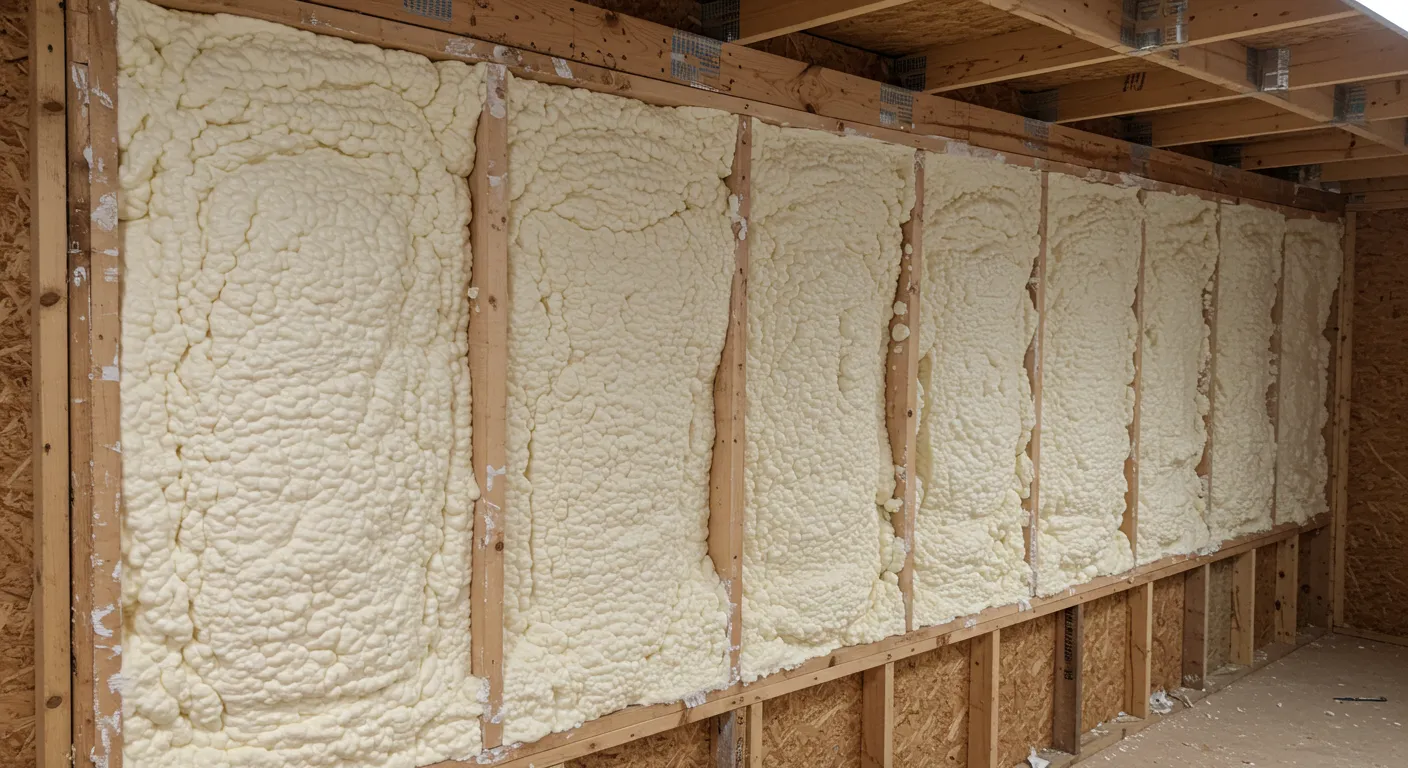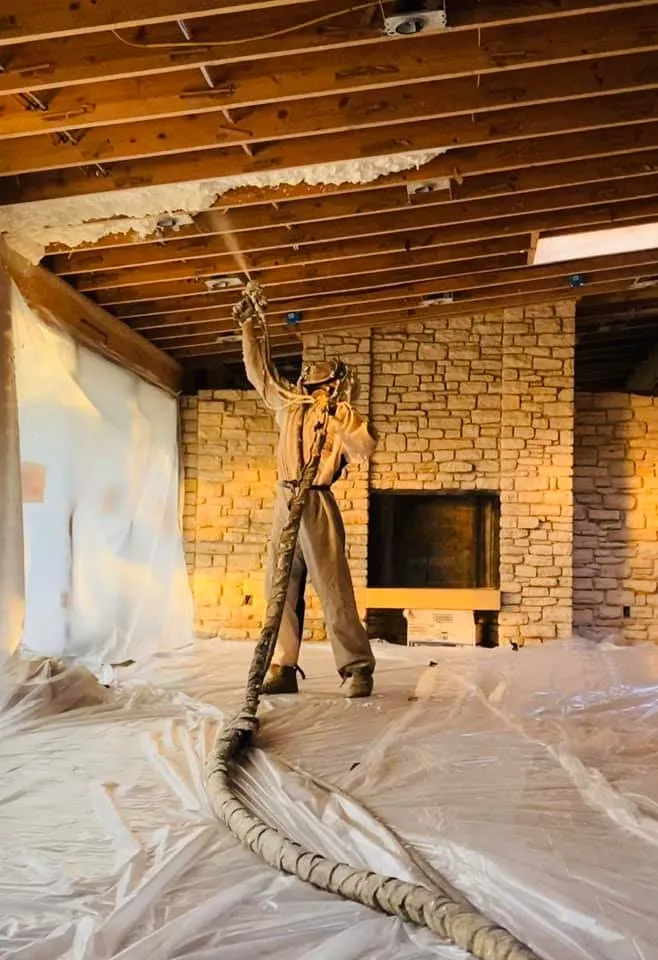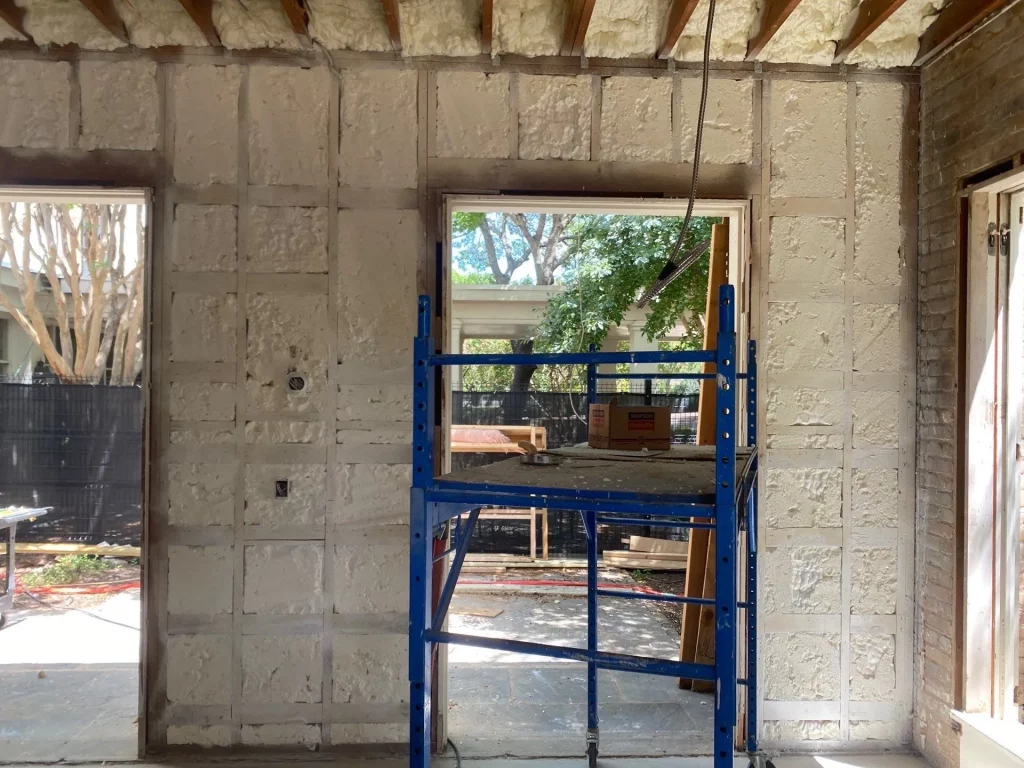Spray foam insulation is widely used for its energy efficiency and durability, but homeowners often wonder how long it lasts. While this insulation type is known for its longevity, factors such as exposure to elements, improper installation, and material composition can affect its lifespan. Understanding how it behaves over time helps in making informed decisions about home insulation.
How Long Does Spray Foam Insulation Last?
Spray foam insulation is designed to be a long-term solution, often lasting the lifetime of a home when applied correctly. Unlike fiberglass or cellulose insulation, which may degrade over time, closed-cell and open-cell spray foam create an airtight seal that resists moisture and air infiltration. In ideal conditions, spray foam insulation can remain effective for 50 years or more.
Factors That Influence Degradation
While spray foam is durable, several factors can contribute to its breakdown:
- Exposure to UV Rays: Direct sunlight can degrade spray foam insulation if it is not properly covered. Over time, UV exposure causes the outermost layers to deteriorate, leading to reduced effectiveness.
- Moisture and Humidity: Closed-cell foam resists water better than open-cell foam, but excessive moisture can compromise the integrity of any insulation. If leaks occur, they can lead to issues like mold growth or foam shrinkage.
- Poor Installation: Incorrect mixing or improper application can result in weaker foam that deteriorates faster. Expansion issues, air pockets, or inconsistent coverage can reduce insulation effectiveness.
- Chemical Reactions: Certain chemicals, such as solvents and some cleaning agents, can cause the foam to degrade if they come into contact with it.
- Pest Intrusion: Though rare, some pests may burrow into insulation. This is more common in open-cell spray foam, which has a softer texture.
Does Spray Foam Shrink or Crack Over Time?
Properly installed spray foam remains stable for decades, but in some cases, shrinkage or cracking may occur due to:
- Temperature Extremes: Sudden fluctuations in temperature can cause minor contraction or expansion.
- Incorrect Mixture Ratios: If the two components of spray foam are not properly mixed during application, the foam may not cure correctly, leading to cracking.
- Aging Effects: While long-lasting, older foam may lose some flexibility over time, particularly in high-moisture environments.
Preventing Insulation Breakdown
To maximize the lifespan of spray foam insulation, consider these best practices:
- Professional Installation: Hiring experienced professionals ensures the foam is mixed and applied correctly, preventing common issues like shrinkage and cracking.
- UV Protection: Applying a protective coating or covering exposed foam with drywall or another material shields it from sunlight damage.
- Routine Inspections: Periodically checking for moisture intrusion, air leaks, or pest activity can help catch small issues before they become serious.
- Proper Ventilation: Ensuring adequate airflow in attic spaces and walls can prevent excessive moisture buildup, reducing the risk of insulation failure.
Choosing the Right Type of Spray Foam
The two primary types of spray foam—open-cell and closed-cell—offer different benefits in terms of longevity and performance:
- Closed-Cell Spray Foam: More rigid and dense, this type resists moisture and air infiltration better than open-cell foam. It also has a higher R-value, making it more energy efficient and less prone to deterioration.
- Open-Cell Spray Foam: Softer and more flexible, this option provides excellent soundproofing and is often more cost-effective. However, it is more susceptible to moisture absorption and may not last as long in humid environments.
Ensuring Long-Term Performance
Spray foam insulation, when properly maintained, continues to provide energy savings and structural benefits for decades. Ensuring it is applied correctly, protected from external factors, and regularly inspected will help preserve its effectiveness over time.
Need Expert Guidance?
For homeowners looking to install or evaluate existing spray foam insulation, professional expertise ensures the best results. Contact Stellrr Insulation & Spray Foam at (512) 710-2839 or email info@stellrr.com for expert advice and service.
FAQs
Does spray foam insulation ever need to be replaced?
Spray foam insulation can last for decades without needing replacement, but if significant damage occurs due to moisture, UV exposure, or improper installation, repairs may be required.
Can spray foam insulation absorb water?
Closed-cell spray foam is water-resistant and does not absorb moisture. Open-cell foam, however, can retain water and may need additional vapor barriers in humid conditions.
Will pests damage spray foam insulation?
While uncommon, some pests may tunnel into softer open-cell foam. Proper sealing and pest control measures help prevent this issue.
Can spray foam insulation crack over time?
If improperly mixed or exposed to extreme conditions, spray foam may develop cracks. A professional application reduces this risk significantly.
How can I protect spray foam insulation from sunlight?
Applying a UV-resistant coating or covering exposed foam with drywall, siding, or another protective layer prevents sun damage.
Is spray foam insulation safe for indoor air quality?
Once fully cured, spray foam insulation is non-toxic and does not emit harmful fumes. Proper ventilation during installation ensures safe air quality.
Does spray foam insulation lose effectiveness over time?
Spray foam maintains its insulating properties for many years. Factors like moisture damage or improper application may reduce its effectiveness, but under normal conditions, it remains highly efficient.
How do I know if my spray foam insulation is failing?
Signs of failure include air leaks, increased energy bills, visible shrinkage, or moisture-related issues like mold. A professional assessment can determine whether repairs are needed.
Can I apply spray foam insulation myself?
While DIY kits are available, professional installation ensures proper mixing, application, and performance, reducing risks of improper curing or poor insulation.
Is spray foam insulation worth the investment?
Spray foam insulation provides superior energy savings, durability, and air sealing compared to traditional insulation methods, making it a cost-effective long-term investment.





